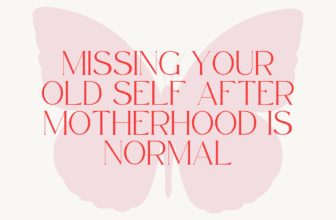
A dad’s relationship to employment is so fraught that here at Fatherly, we made it the subject of the first chapter in Fatherly’s new book Fatherhood: A Comprehensive Guide to Birth, Budgeting, Finding Flow, and Becoming a Happy Parent (available for pre-order now). It’s clear that the occupational hazard of being a father is established from the get-go. Men simply aren’t offered paternity leave. Fathers are largely reliant on a patchwork of state laws that may or may not allow them paid time at home in the first weeks of their child’s life. Only five states currently mandate paid parental leave. New York State, California, New Jersey, Rhode Island, Washington State, and Washington, DC, now have laws in place requiring employers to provide paid leave to employees. Leave amounts run from four to twelve weeks and cover anywhere from 60 to 90 percent of wages, depending on the hours a parent works.
Any other leave a parent might receive comes at the discretion of an employer. The best businesses recognize the benefit of allowing family time to establish long-term care patterns and bonding. They’ll offer three months of leave to both parents. The worst companies allow paltry leave or offer it only to mothers.
Some men are taking action. Financial giant JP Morgan was stung by such terrible policies back in 2021. The Fortune 500 company paid out a $5 million settlement after a civil rights lawsuit was brought on behalf of a father denied paternity leave because he was not considered a primary caregiver.
The thing is, aggressive action like civil rights lawsuits is exactly the kind of thing that will change policies and normalize fathers taking leave. It just seems that fathers either don’t have the balls to push companies to make changes, or they are waiting for women to take the lead.
Unfortunately, I feel I need to pause here to address the fact I’m taking the benefits of leave for fathers as a given. But, such is our world. You’d have to be a hapless dummy or a recalcitrant edgelord to believe that: a) a father spending more time with a child in infancy has no benefits for either kid or father or b) that there’s nothing for a dad to do when a child is a newborn. It should be obvious that establishing patterns of nurturing and care in infancy pays dividends for future development. And it’s borderline misogynistic to be so completely blind to the unpaid labor women perform in the home, from the outset, that you think the only thing they’re doing during leave is “breastfeeding.”
Regressive ideas about a father’s role in the first months of a child’s life drive the status quo. But they persist because men have allowed them to persist. Paternal leave is a men’s issue and driving change to make it both universal and expected is a task that men should lead. I shouldn’t be the Lys Lenzs of the world pressuring men to take leave; it should be our male colleagues and male business thought leaders.
One of the better traits of masculinity is the desire to both lead and protect. We have an opportunity to do both of those things when it comes to improving parental leave. It is not the job of feminists to tell men what to do or to lead men on the charge. In fact, waiting for women to tell us what to do has made their lives so much more complicated. Men shouldn’t have to be told it’s time to wash a dish or change a load of laundry as much as they shouldn’t be told how to agitate for change.
And it’s men’s unique failure to lead that allows inequality in employment issues like paid leave, or even equal pay and advancement, to fester in our workplaces. You have got to believe that paternal leave would be universal if America’s corporations felt that not having it would cause them to lose the faith and labor of men. There’s more than a little irony in being told you’re the “stronger” sex and then sitting on that strength to the detriment of our children and families.
Lenz is correct. More men need to take more leave for their families. But in order for that to happen, there needs to be leave available. And it won’t be available until men make it a point to demand recognition of their own equality in caregiving.
This article was originally published on Oct. 20, 2021






